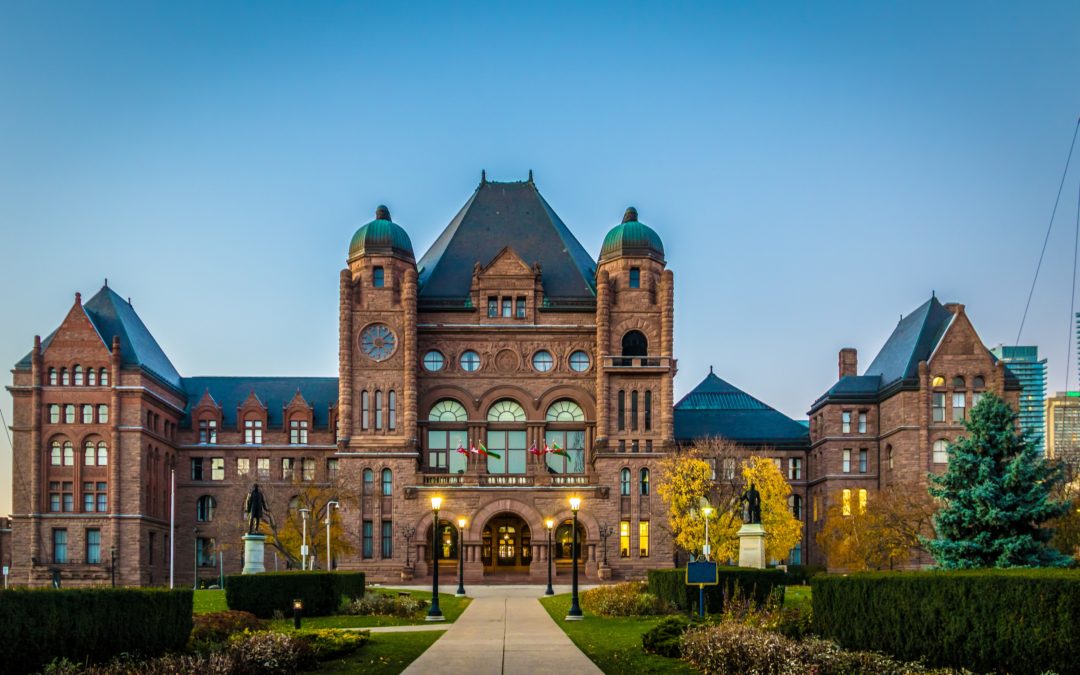NOVEMBER 6, 2019 – With the release of the 2019 Fall Economic Statement, the Ford government is steering clear of new program cuts, pivoting from the course laid out in the spring Budget. Instead, the province is investing an additional $1.3 billion in health care, child care and other supports, while renewing its focus on delivering on priorities it articulated in the 2018 election.
Today’s release caps off several months of action by the Ford government to turn the page on the first year of its mandate. Progress on the government’s agenda has been often overshadowed by controversy and some self-inflicted wounds that dominated the media. With the federal election now in the rear-view mirror, and following the recent unveiling of the latest red tape reduction omnibus bill, this year’s Fall Economic Statement reflects a government with a growing sense of confidence.
 Buoyed by a strong economy and higher-than-anticipated provincial revenues, Finance Minister Rod Phillips delivered a statement infused with an emphasis on making life more affordable and growing the economy, while simultaneously taking moderate steps to tackle the deficit.
Buoyed by a strong economy and higher-than-anticipated provincial revenues, Finance Minister Rod Phillips delivered a statement infused with an emphasis on making life more affordable and growing the economy, while simultaneously taking moderate steps to tackle the deficit.
The Fall Economic Statement is consistent with the Premier’s recently re-iterated commitment to maintain a measured approach to eliminating the provincial deficit, without the deep spending cuts that many in the media and opposition have expected.
Despite the province opting to increase spending in key areas, strong tax revenue growth means the deficit is now projected to be $9 billion for the 2019-2020 fiscal year, more than a billion dollars lower than the $10.3 billion estimated in the spring Budget. The deficit will still be higher than the previous year, confirmed at $7.4 billion for 2018-19 in the Public Accounts released in September.
The government is setting a low bar for the years ahead, with growth rates conservatively projected below two per cent for the next three years, and deficits expected to continue through to 2023. Making further progress on the deficit in good economic times is critical to staying true to the Ford government’s desire to avoid significant provincial budget cuts.
With the deficit targeted to be at $5.4 billion at the end of 2021-22, immediately prior to the next provincial election, the Ford government will likely be counting on growth to prove higher than the modest forecast in order to deliver a pre-election surprise.
New announcements in today’s statement included:
- A continued determination to liberalize alcohol sales, tabling legislation for big box expansion for the province’s beer and wine market.
- $279 million was announced for the Ontario Autism program – topping up the program to a total of $600 million. This was announced by former Ministry of Children, Community and Social Services Lisa McLeod in March, but not tabled until today.
- Craft cannabis may be coming to a grow-op near you: the government will amend legislation to allow licensed producers to establish retail stores on-site at production facilities.
- The government reversed itself on child care cash for municipalities, now including $122 million to support local programs.
- $64 million will go to support elementary and secondary education programs based on updated enrollment forecasts.
- $68 million will go towards small- and medium-sized hospitals to deal with wait times and improve patient care.
The government also highlighted several recent announcements that will be a core part of their mandate going forward:
- A landmark transit infrastructure agreement between the Ontario government and the City of Toronto is poised to put to rest the major transit disputes that have roiled the provincial capital for the past decade, and has both the city and the province working together on a much-needed expansion of transit in Toronto and the GTA.
- Transforming government – under the mantra of Smart Initiatives – is on a priority track through major initiatives to consolidate transfer payments, centralize procurement, and deliver more government services digitally.
- Responding to the continuing economic needs of hard hit communities in Southwestern and Eastern Ontario by reforming the two existing employer support programs into the Regional Development Program, lowering barriers to entry for small and medium-sized businesses, broadening the pool of potential applicants while shifting a greater focus to performance-based loans.
Minister Phillips tabled a corresponding bill, the Plan to Build Ontario Together Act, 2019 (Bill 138), to enact additional proposed legislative measures stemming from the Fall Economic Statement. The full text of the bill has yet to be publicly released, and may contain other impactful changes.
For more information:
Phil Dewan
President
pdewan@counselpa.com
416.522.6107
Stephanie Gawur
Associate Vice President
sgawur@counselpa.com
416.920.0716 ext. 223

